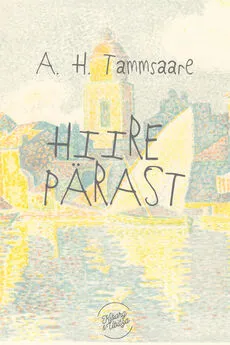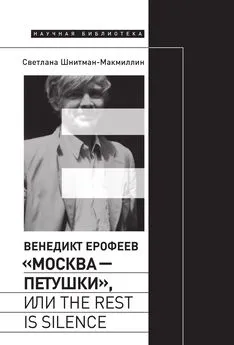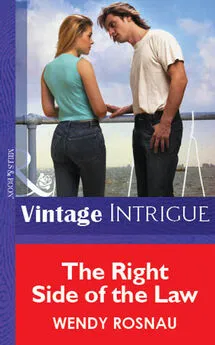W. Ainsworth - Rookwood
- Название:Rookwood
- Автор:
- Жанр:
- Издательство:неизвестно
- Год:неизвестен
- ISBN:нет данных
- Рейтинг:
- Избранное:Добавить в избранное
-
Отзывы:
-
Ваша оценка:
W. Ainsworth - Rookwood краткое содержание
Rookwood - читать онлайн бесплатно полную версию (весь текст целиком)
Интервал:
Закладка:
"Is this, then, your resolve?"
"It is. Mr. Coates," said Ranulph, calling the attorney, who had been an inquisitive spectator, though, luckily, not an auditor of this interview, "unbind the prisoner, and bring him hither."
"Is it your ladyship's pleasure?" asked Mr. Coates, who regretted exceedingly that he could not please both parties.
Lady Rookwood signified her assent by a slight gesture in the affirmative.
"Your bidding shall be done, Sir Ranulph," said Coates, bowing and departing.
"Sir Ranulph!" echoed Lady Rookwood, with strong emphasis; "marked you that?"
"Body o' me," muttered the attorney, "this is the most extraordinary family to be sure. Make way, gentlemen, if you please," added he, pushing through the crowd, towards the prisoner.
Having described what took place between Lady Rookwood and her son in one part of the room, we must now briefly narrate some incidental occurrences in the other. The alarm of a robber having been taken, spread with great celerity through the house, and almost all its inmates rushed into the room, including Doctor Small, Titus Tyreonnel, and Jack Palmer.
"Odsbodikins! are you there, honey?" said Titus, who discovered his ally; "the bird's caught, you see."
"Caught be d—d," replied Jack, bluffly; "so I see; all his own fault; infernal folly to come here, at such a time as this. However, it can't be helped now; he must make the best of it. And as to that sneaking, gimlet-eyed, parchment-skinned quill-driver, if I don't serve him out for his officiousness, one of these days, my name's not Jack Palmer."
"Och! cushlamaeree! did I ever; why, what the devil's the boy to you, Jack? Fair play's a jewel, and surely Mr. Coates only did his duty. I'm sorry he's captured, for his relationship to Sir Piers, and because I think he'll be tucked up for his pains; and, moreover, I could forgive the poaching; but as to the breaking into a house, on such an occasion as this, och! it's a plaguey bad look. I'm afraid he's worse than I thought him."
A group of the tenantry, many of whom were in a state of intoxication, had, in the meantime, formed themselves round the prisoner. Whatever might be the nature of his thoughts, no apprehension was visible in Luke's countenance. He stood erect amidst the assemblage, his tall form towering above them all, and his eyes fixed upon the movements of Lady Rookwood and her son. He had perceived the anguish of the latter, and the vehemence of the former, attributing both to their real causes. The taunts and jeers, threats and insolent enquiries, of the hinds who thronged round him, passed unheeded; yet one voice in his ear, sharp as the sting of a serpent, made him start. It was that of the sexton.
"You have done well," said Peter, "have you not? Your fetters are, I hope, to your liking. Well! a wilful man must have his own way, and perhaps the next time you will be content to follow my advice. You must now free yourself, the best way you can, from these Moabites, and I promise you it will be no easy matter. Ha! ha!"
Peter withdrew into the crowd; and Luke, vainly endeavouring to discover his retreating figure, caught the eye of Jack Palmer fixed upon himself, with a peculiar and very significant expression.
At this moment Mr. Coates made his appearance.
"Bring forward the prisoner," said the man of law to his two assistants; and Luke was accordingly hurried along, Mr. Coates using his best efforts to keep back the crowd. It was during the pressure that Luke heard a voice whisper in his ear, "Never fear, all's right"; and turning his head he became aware of the propinquity of Jack Palmer. The latter elevated his eyebrows with a gesture of silence, and Luke passed on as if nothing had occurred. He was presently confronted with Lady Rookwood and her son; and, notwithstanding the efforts of Mr. Coates, seconded by some few others, the crowd grew dense around them.
"Remove his fetters," said Ranulph. And his manacles were removed.
"You will consent to remain here a prisoner until tomorrow."
"I consent to nothing," replied Luke; "I am in your hands."
"He does not deserve your clemency, Sir Ranulph," interposed Coates.
"Let him take his own course," said Lady Rookwood; "he will reap the benefit of it anon."
"Will you pledge yourself not to depart?" asked Ranulph.
"Of course," cried the attorney; "to be sure he will. Ha, ha!"
"No," returned Luke haughtily, "I will not—and you will detain me at your proper peril."
"Better and better," exclaimed the attorney. "This is the highest joke I ever heard."
"I shall detain you, then, in custody, until proper enquiries can be made," said Ranulph. "To your care, Mr. Coates, and to that of Mr. Tyrconnel, whom I must request to lend you his assistance, I commit the charge; and I must further request, that you will show him every attention which his situation will permit. Remove him. We have a sacred duty to the dead to fulfil, to which even justice to the living must give way. Disperse this crowd, and let instant preparations be made for the completion of the ceremonial. You understand me, sir."
"Ranulph Rookwood," said Luke, sternly, as he departed, "you have another—a more sacred office, to perform. Fulfil your duty to your father's son."
"Away with him," cried Lady Rookwood. "I am out of all patience with this trifling. Follow me to my chamber," added she to her son, passing towards the door. The concourse of spectators, who had listened to this extraordinary scene in astonishment, made way for her instantly, and she left the room, accompanied by Ranulph. The prisoner was led out by the other door.
"Botheration!" cried Titus to Mr. Coates, as they followed in the wake, "why did he choose out me? I'll lose the funeral entirely by his arrangement."
"That you will," replied Palmer. "Shall I be your deputy?"
"No, no," returned Coates. "I will have no other than Mr. Tyrconnel. It was Sir Ranulph's express wish."
"That's the devil of it," returned Titus; "and I, who was to have been chief mourner, and have made all the preparations, am to be omitted. I wish Sir Ranulph had stayed till tomorrow—what could bring him here, to spoil all?—it's cursedly provoking!"
"Cursed provoking!" echoed Jack.
"But then there's no help, so I must make the best of it," returned the good-humoured Irishman.
"Body o' me," said Coates, "there's something in all this that I can't fathom. As to keeping the prisoner here, that's all moonshine. But I suppose we shall know the whole drift of it to-morrow."
"Ay," replied Jack, with a meaning smile, "to-morrow!"
| Contents |
BOOK II
THE SEXTON
Duchess. Thou art very plain.
Bosola. My trade is to flatter the dead—not the living—I am a tomb-maker.
—WEBSTER
CHAPTER I
THE STORM
THE night was wild and stormy. The day had been sultry, with a lurid, metallic-looking sky, hanging like a vast galvanic plate over the face of nature. As evening drew on, everything betokened the coming tempest. Unerring indications of the approach were noted by the weather-wise at the hall. The swallow was seen to skim the surface of the pool so closely, that he ruffled its placid mirror as he passed; and then, sharply darting round and round, with twittering scream, he winged his rapid flight to his clay-built home beneath the barn eaves. The kine that had herded to the margin of the water, and sought, by splashing, to relieve themselves from the keen persecution of their myriad insect tormentors, wended stallwards, undriven, and deeply lowing. The deer, that at twilight had trooped thither also for refreshment, suddenly, "with expanded nostrils, snuffed the air," and bounded off to their coverts, amidst the sheltering fernbrake. The rooks, "obstreperous of wing, in crowds combined," cawed in a way that, as plainly as words could have done, bespoke their apprehension; and were seen, some hovering and beating the air with flapping pinion, others shooting upwards in mid space, as if to reconnoitre the weather; while others, again, were croaking to their mates, in loud discordant tone, from the highest branches of the lime-trees; all, seemingly, as anxious and as busy as mariners before a gale of wind.
At sunset, the hazy vapours, which had obscured the horizon throughout the day, rose up in spiral volumes, like smoke from a burning forest, and, becoming gradually condensed, assumed the form of huge, billowy masses, which, reflecting the sun's light, changed, as the sinking orb declined, from purple to flame colour, and thence to ashy, angry grey. Night rushed onwards, like a sable steed. There was a dead calm. The stillness was undisturbed, save by an intermittent, sighing wind, which, hollow as a murmur from the grave, died as it rose. At once the grey clouds turned to an inky blackness. A single, sharp, intensely vivid flash shot from the bosom of the rack, sheer downwards, and struck the earth with a report like that of a piece of ordnance. In ten minutes it was dunnest night, and a rattling thunderstorm.
The progress of the storm was watched with infinite apprehension by the crowd of tenantry assembled in the great hall; and loud and frequent were the ejaculations uttered, as each succeeding peal burst over their heads. There was, however, one amongst the assemblage who seemed to enjoy the uproar. A kindred excitement appeared to blaze in his glances, as he looked upon the storm without. This was Peter Bradley. He stood close by the window, and shaded not his eyes, even before the fiercest flashes. A grin of unnatural exhilaration played upon his features, and he seemed to exult in, and to court, the tempestuous horrors, which affected the most hardy amongst his companions with consternation, and made all shrink trembling into the recesses of the room. Peter's conduct was not unobserved, nor his reputation for unholy dealing forgotten. To some he was almost as much an object of dread as the storm itself.
"Didst ever see the like o' that?" said farmer Burtenshaw (one of the guests, whose round, honest face, good wine had recently empurpled, but fear had now mottled white), addressing a neighbour. "Didst ever hear of any man that were a Christian laughing in the very face o' a thunderstorm, with the lightnin' fit to put out his eyes, and the rattle above ready to break the drums o' his ears? I always thought Peter Bradley was not exactly what he ought to be, and now I am sure on it."
"For my part, I think, neighbour Burtenshaw," returned the other, "that this great burst of weather's all of his raising, for in all my born days I never see'd such a hurly-burly, and hope never to see the like of it again. I've heard my grandfather tell of folk as could command wind and rain; and, mayhap, Peter may have the power—we all know he can do more nor any other man."
"We know, at all events," replied Burtenshaw, "that he lives like no other man; that he spends night after night by himself in that dreary churchyard; that he keeps no living thing, except an old terrier dog, in his crazy cottage; and that he never asks a body into his house from one year's end to another. I've never crossed his threshold these twenty years. But," continued he, mysteriously, "I happened to pass the house one dark, dismal night, and there what dost think I see'd through the window?"
"What—what didst see?"
"Peter Bradley sitting with a great book open on his knees; it were a Bible, I think, and he crying like a child."
"Art sure o' that?"
"The tears were falling fast upon the leaves," returned Burtenshaw; "but when I knocked at the door, he hastily shut up the book, and ordered me to be gone, in a surly tone, as if he were ashamed of being caught in the fact."
Читать дальшеИнтервал:
Закладка:




![Rakot - Апостол Новой Веры. Том 1 [СИ]](/books/1061842/rakot-apostol-novoj-very-tom-1-si.webp)
![Rakot - Укуренный мир. Том 3 [СИ]](/books/1073038/rakot-ukurennyj-mir-tom-3-si.webp)




